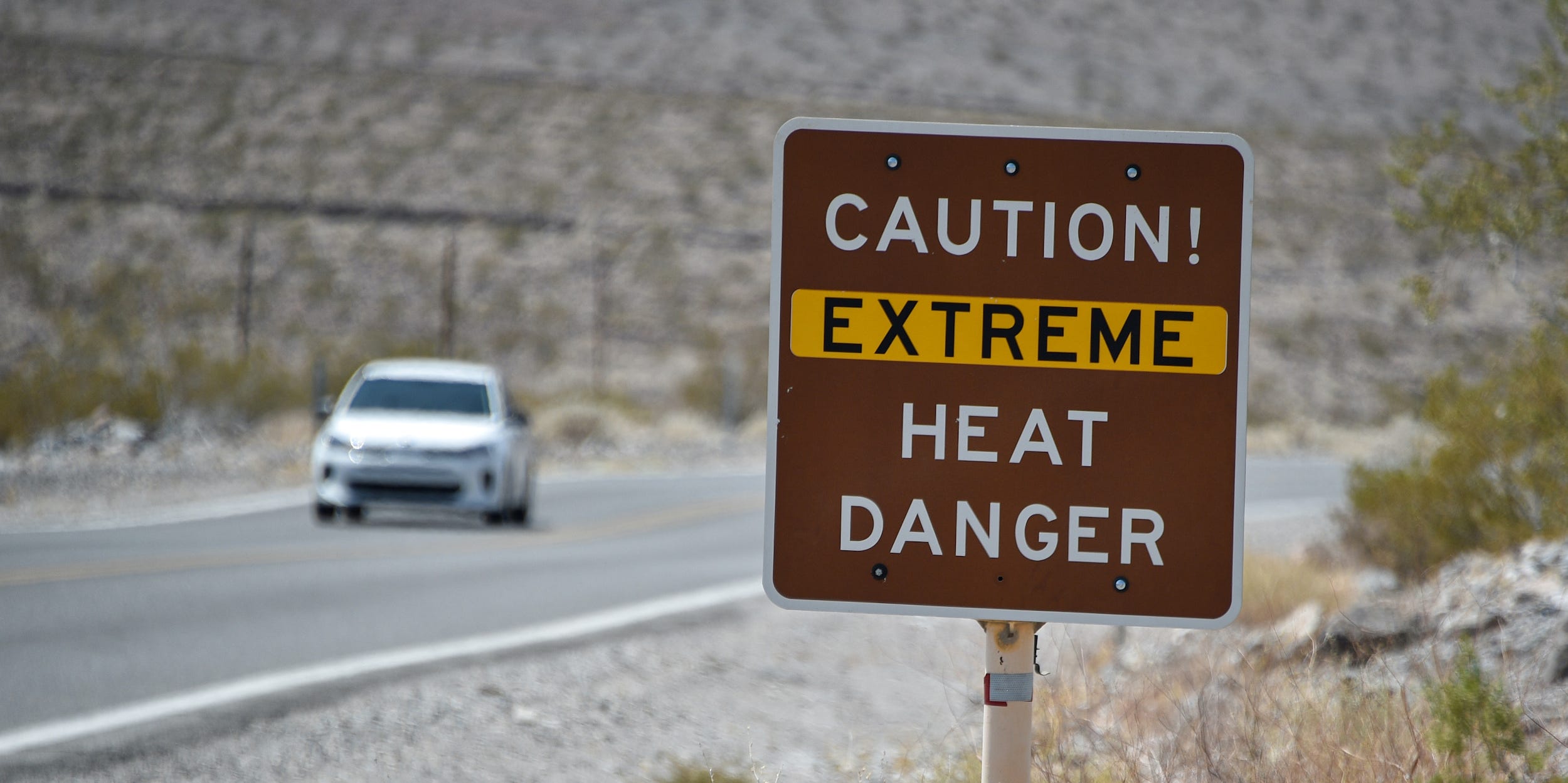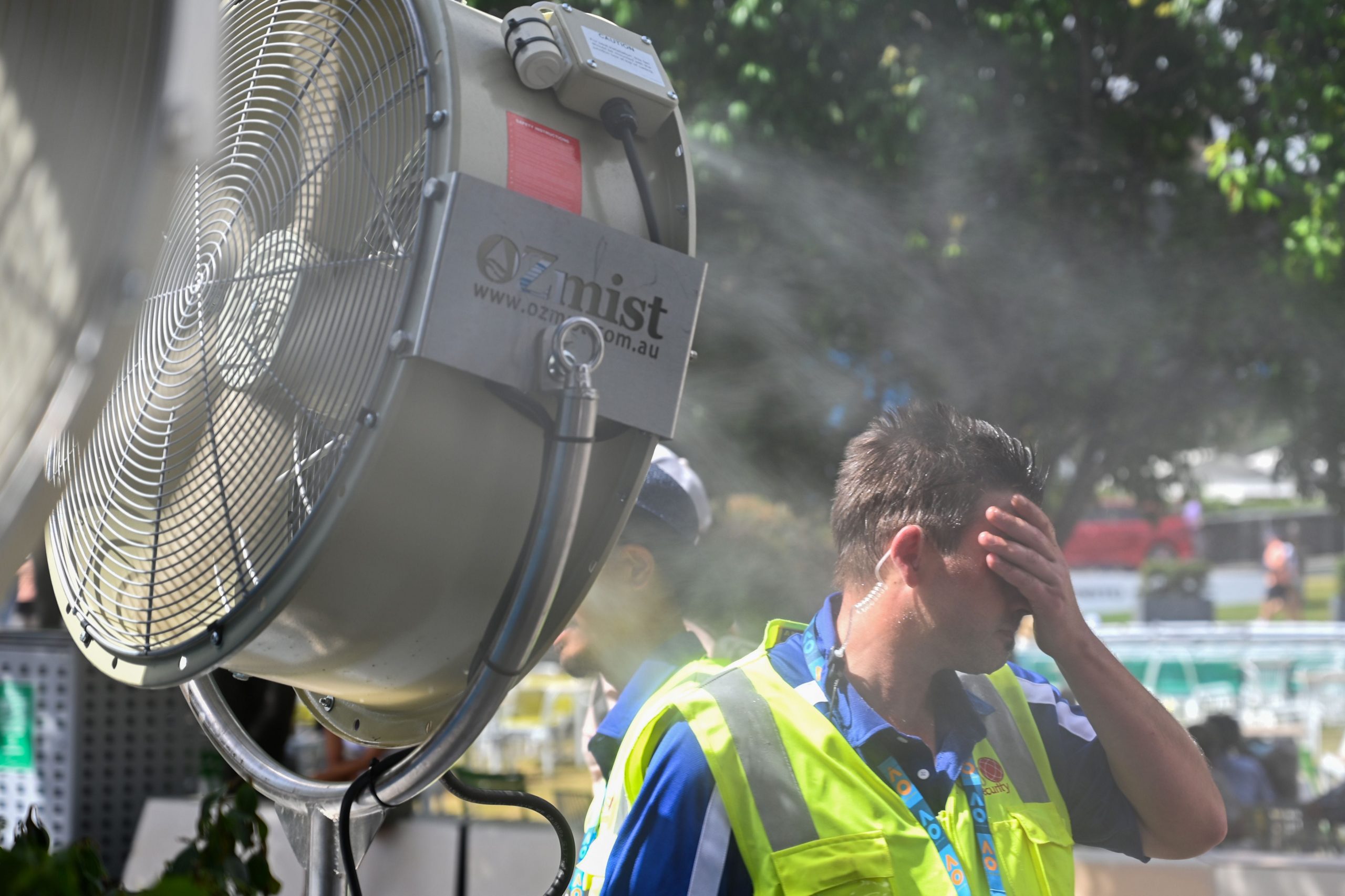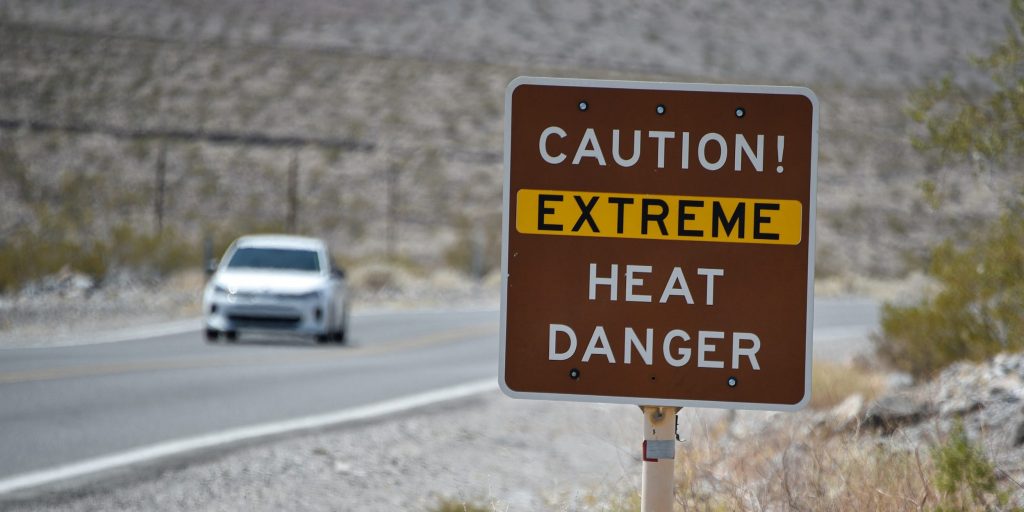
REUTERS/David Becker
- Between 2011 and 2019, at least 344 workers in the US died from exposure to extreme heat.
- The Biden administration is drafting a regulation to address the threat of heat at the workplace.
- Labor advocates hope to influence that process by pushing for aggressive state-level protections.
Labor advocates are urging Western states ravaged by heat waves and wildfires to act in concert to develop better protections for workers, arguing that a changing climate – and increasingly common extreme weather – demands a unified response.
The initiative, led by the United Farm Workers, calls on the Democratic governors of California, Oregon, and Washington to "adopt consistent heat and wildfire smoke protection standards" to ensure that a largely immigrant workforce is not forced to navigate a patchwork of regulation.
Signed by more than 185 immigrant, worker, and environmental advocates, a letter – obtained by Insider and set to be delivered to the governors on Friday – argues this "Western States Pact" would prevent a race to the bottom and help ensure workers' lives are centered in the federal debate over heat and workplace safety.
The effort, which has been accompanied by informal staff lobbying in the respective governors' offices, comes after the Biden administration in September signaled that it would begin developing a federal regulation aimed at providing millions of workers better protections from extreme heat, whether they work in the field or factory. That rule-making process formally began on Tuesday, per an announcement from the US Department of Labor.
But it could be years before any new federal regulation actually comes into effect. And what that regulation ultimately looks like will be greatly informed by the actions of states in the "liberal" West – with their own rules, which are still evolving, more likely to serve as the ceiling than the floor.
'These are human lives. They are not tools.'
Between 2011 and 2019, at least 344 workers in the US died from exposure to extreme heat, according to the Bureau of Labor Statistics.
Those who work in agriculture - an essential but largely out-of-sight workforce - are particularly at risk due to the nature of their job, and the fact that it doesn't stop when others would.
Overall, this largely migrant pool of laborers is far more likely to die on the job than the average worker in the US. According to one study, reported by Bloomberg, they are 35 times as likely to die from heat.

Getty
"Heat deaths are particularly enraging because they're entirely preventable," Elizabeth Strater, an organizer with UFW, told Insider.
Indeed, it's no mystery what workers, like all human beings, need to survive: cool drinking water, rest, and shade - as well as the ability to spot the signs of a heat-related illness. Regulators, she said, need only recognize this and require employers to provide it.
"These are human lives," Strater said. "They are not tools."
Currently, however, farm workers are often expected to be almost superhuman. In the state of Washington, emergency regulations issued last July called on employers to provide workers shade and breaks - but only when temperatures breached 100 degrees Fahrenheit. In California, where workers are more acclimated to high temperatures, it's 95.
Neither standard would have necessarily saved the life of Florencio Gueta Vargas. A 69-year-old father of six from Mexico, he died two weeks after Washington's emergency rule was unveiled, "found by his tractor after working a shift in temperatures that his employer said were in the low 90s," The Seattle Times reported.
Higher temperatures are not the only climactic threat to farm workers. California, Oregon, and Washington saw five times the fire damage from 2016 to 2020, the letter says. Even when areas are on fire, farm workers - bound by their visas to work for a single employer - are sometimes asked to stay behind.
Last year, while parts of California's Sonoma County were subject to a mandatory evacuation order, workers headed to the exclusion zone to harvest grapes.
And when fires blaze, air quality suffers. Among worker advocates' demands is that Western states make employers provide N95 respirators and protective eyewear, along with the shade and drinking water. They are also calling for workers to be able to report violations through a smartphone app without fear of employer retaliation.
"We're setting the expectation now, at the state and federal level, that there is really only one question that needs to be asked," Strater said. "What does it take to protect the lives and the health of farm workers?"
Have a news tip? Email this reporter: [email protected]

